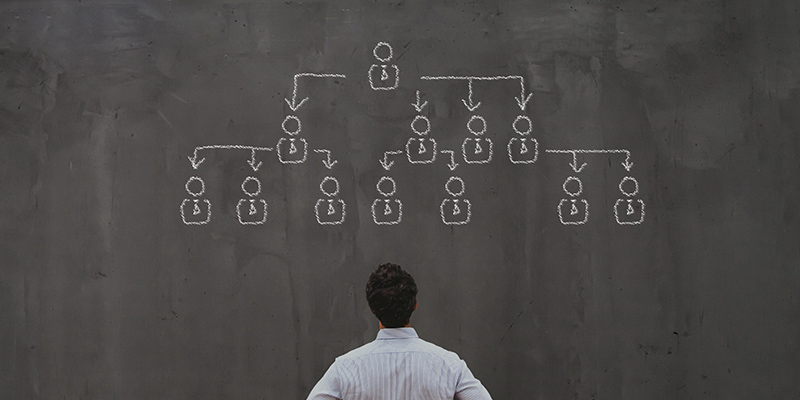An Overview of HOA Officers Job Descriptions, Duties, And Responsibilities

If you've just been elected to your HOA's board of directors, it can be an exciting and overwhelming experience. You might be slightly familiar with what happens, but you still worry about carrying out all of your HOA roles and responsibilities. The road to success, though, begins with a comprehensive understanding of your HOA officers job descriptions.
Browse By Category
Sign up for Our Newsletter
If you’ve just been elected to your HOA’s board of directors, it can be an exciting and overwhelming experience. You might be slightly familiar with what happens, but you still worry about carrying out all of your HOA roles and responsibilities. The road to success, though, begins with a comprehensive understanding of your HOA officers job descriptions.
Breaking Down HOA Officers Job Descriptions
When accepting one of the HOA board positions, you should know that you’re taking on a lot of responsibilities. But, don’t let that scare you. Your role as a board member can also be extremely fulfilling. However, to carry out your duties successfully, you must first know what they are.
The board is responsible for managing the entire association. Sometimes, HOAs will turn to an HOA management company to fulfill certain obligations. That doesn’t mean the board can just stand idly by. If your association works with an HOA management company, your job as a board member is to oversee tasks.
The specific duties of HOA board members will depend on the officer’s title, though. Here are the HOA officers job descriptions:
HOA Board President
 In every sense, the association president serves as the face of the operation. It’s similar to being the CEO of a company. Although each association is different, the HOA president duties and responsibilities remain largely the same.
In every sense, the association president serves as the face of the operation. It’s similar to being the CEO of a company. Although each association is different, the HOA president duties and responsibilities remain largely the same.
For one thing, the president runs all board meetings. They also carry out contracts, orders, and documents on behalf of the association. The president also handles the daily administration of the association. In addition, they make sure all HOA board duties are fulfilled with the community’s best interests in mind.
Learning how to be a good HOA president takes effort. Based on the president’s job description, anyone who takes on this role must have excellent leadership, management, and communication skills. They must know how to delegate and be a team player. A president is not a dictator. Rather, a president makes sure the entire board works like a well-oiled machine with the community’s best interests in mind.
HOA Board Vice President
The HOA vice president, in simple terms, assumes the role of president when, for any reason, the latter is unable to. In that case, the VP fulfills the president’s responsibilities. Of course, the vice president can only exercise these powers in the president’s absence.
Other HOA vice president duties can vary depending on the association. Most HOAs, though, assign the VP with responsibilities like managing grounds and buildings as well as recreational properties. The vice president can also take over other activities of the HOA and lead committees. If your HOA employs workers, the vice president can serve as the executive director of the employee manager.
HOA Board Secretary
 Some of the HOA secretary responsibilities include maintaining and keeping a majority of the association’s records. This refers to membership records, board meeting records, and other official HOA records.
Some of the HOA secretary responsibilities include maintaining and keeping a majority of the association’s records. This refers to membership records, board meeting records, and other official HOA records.
The secretary also takes down meeting minutes and sends out notices of the meeting. Other than that, HOA secretary duties include filing corporate annual reports and attesting to legal documents signed by the president on behalf of the HOA.
Carrying out HOA board secretary duties often comes with challenges. Thus, it requires a person with great organizational skills and an eye for detail.
HOA Board Treasurer
The treasurer manages the association’s finances. As part of the HOA treasurer duties, they keep all financial records and serve as the custodian of securities and funds. The treasurer is also in charge of preparing — or, if you outsource to a CPA, overseeing the preparation of — all financial statements and reports. In addition to that, the treasurer works closely with other leaders to plan the annual budget.
Other HOA Board Responsibilities
There are also some collective responsibilities a homeowner association board of directors must fulfill. In addition to the specific tasks that come with their job titles, the HOA board of directors as a whole must carry out the following HOA board member duties:
1. Follow Governing Documents
Every homeowners association, no matter which state they’re in, has a set of governing documents. These include the association’s bylaws, articles of incorporation, and CC&Rs. Such documents contain guidelines on how the board should run the community. They also typically consist of provisions regarding what the board can and can’t do.
These governing documents, second only to the laws of the land, hold the highest authority in an HOA. They dictate the rules and regulations within an association, which both the board and the community members must follow.
As the community leaders, the HOA board must make sure to follow the stipulations laid out in the governing documents. They must follow the processes and procedures stated in these documents. Failure to do so can be considered a breach of fiduciary responsibility of HOA board members.
Of course, it goes without saying that the HOA board must also follow federal, state, and local laws. Not all states have the same laws when it comes to homeowners associations. Therefore, it’s best to review your state laws before proceeding with actions or decisions. When in doubt, it’s always a good idea to consult with your HOA attorney. This way, you can prevent the risk of liability.
2. Enforce Rules
 An association’s CC&Rs and operating rules direct what homeowners can and can’t do in the community. The CC&Rs also inform how to compute and collect assessments.
An association’s CC&Rs and operating rules direct what homeowners can and can’t do in the community. The CC&Rs also inform how to compute and collect assessments.
Board members have a duty to enforce these covenants and rules to allow for smooth operations. For instance, if a homeowner fails to pay their dues, the HOA board can impose fines or place a lien on their property to encourage payment. Of course, make sure to still adhere to your governing documents when enforcing such rules.
A problem many associations face is selective enforcement. This means the HOA board doesn’t apply the rules consistently among all homeowners, perhaps due to favoritism or personal bias. Selective enforcement can get the board in serious trouble such as legal action. As such, the board must always practice uniform enforcement of rules and covenants. Follow precedence and stay away from conflicts of interest.
3. Maintain Common Areas
One of the primary HOA board duties is to maintain the community. This means hiring vendors to keep common areas in tiptop shape. Most associations, though, face the difficulty of having too many repairs or maintenance requests. In such cases, the board must learn how to prioritize. Which requests are the gravest and demand the most attention? Develop a plan to tackle these requests in order of priority.
In addition, the board must perform regular inspections of all common areas and building exteriors. The board doesn’t necessarily need to conduct the inspection themselves. In fact, it’s infinitely better to outsource the job to a professional who can spot even the tiniest of vulnerabilities. By scheduling regular inspections, you can make sure all areas remain safe and in good condition.
4. Handle Funds
Managing the association’s financials also falls under the list of HOA board duties. Board members work together to prepare the annual budget for the coming year. To do this, the board anticipates upcoming expenses, taking things like services and insurance. The board must also look at the previous year’s actual expenses and obtain proposals from vendors.
Don’t forget to account for the reserve fund, as well. An association’s reserves are there to cover future large-scale replacements or repairs. A portion of the collected assessments goes to the reserve fund to maintain a healthy level. To determine the optimum level for your reserves, make sure to conduct a reserve study periodically. Some states require performing a reserve study every few years.
From there, the board must then calculate how much to charge homeowners in dues. Once you have a number in mind, you must notify all homeowners of the amount. The board also takes charge of collecting these assessments, including any late fees residents may incur. For delinquent homeowners, the board can partner with an HOA collections agency, a management company, or handle the issue themselves.
Knowledge Leads to Success
 Individual members of the board have their own respective HOA leadership roles and duties to fulfill. However, as a whole, your HOA board should work together to accomplish your objectives. Understanding your HOA officers job descriptions is integral to success. Once you know what you need to do, you can take the proper steps to reach your goals. Some might find it troublesome to become a board member, but the work pays off and the role can be fulfilling in the end.
Individual members of the board have their own respective HOA leadership roles and duties to fulfill. However, as a whole, your HOA board should work together to accomplish your objectives. Understanding your HOA officers job descriptions is integral to success. Once you know what you need to do, you can take the proper steps to reach your goals. Some might find it troublesome to become a board member, but the work pays off and the role can be fulfilling in the end.
RELATED ARTICLES:
- The Main Duties Of Your HOA Treasurer
- What Are The Fiduciary Responsibilities Of HOA Board Members?
- What Makes A Good HOA Board Member? Secrets to Success
Trending Now
Related Article
Sign up for Our Monthly Newsletter
Sign up below for monthly updates on all HOA Resource
















